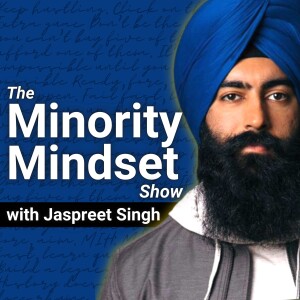

Angela discusses common blunders people make when planning for or entering retirement. She emphasizes the importance of planning and avoiding mistakes that can jeopardize financial stability and overall well-being in retirement. The episode covers five key blunders and offers advice on how to avoid them.
Key Takeaways 💡
Many people mistakenly treat their first year of retirement as a windfall, especially ranchers, farmers, and business owners who are used to spending when they have cash av...
Angela discusses common blunders people make when planning for or entering retirement. She emphasizes the importance of planning and avoiding mistakes that can jeopardize financial stability and overall well-being in retirement. The episode covers five key blunders and offers advice on how to avoid them.
Key Takeaways 💡- Many people mistakenly treat their first year of retirement as a windfall, especially ranchers, farmers, and business owners who are used to spending when they have cash available. Spending too much money early in retirement can be devastating to long-term financial stability, so it's important to avoid this common pitfall.
- To avoid overspending, retirees need a spending plan that their retirement nest egg can support, an investment plan to support that spending plan, and a backup plan for unexpected events. It's crucial to have the discipline to stick to these plans to ensure long-term financial security.
- Many retirees incorrectly assume that their taxes will always be low in retirement, but this isn't always the case, especially if they retire in their early sixties without taking Social Security or taxable distributions. Failing to take advantage of lower tax years can lead to significantly higher tax payments later on, especially when Social Security and required minimum distributions kick in, and also consider the widow's penalty.
- Taking Social Security at age 62 is a common mistake that can cost retirees a significant amount of money, as waiting each year results in an 8% increase in benefits. It's important to conduct a break-even maximization analysis to determine the optimal time to start receiving Social Security, considering factors like health, life expectancy, marital status, and tax situation.
- It is a common misconception that retirees need to lower their investment risk, but this may not always be true, as retirement can last just as long as their working years. Taking less risk can put retirees at risk of not keeping up with inflation, so it's important to get the risk right and plan for the sequence of returns risk, which can be catastrophic to retirement if not properly managed.
- Many retirees set themselves up for failure by not having a clear purpose or plan for what they are retiring to, focusing solely on retiring from something. The newness of hobbies can wear off quickly, so it's important to continue using one's God-given strengths and talents, challenge the mind and body, and maintain meaningful relationships to avoid losing purpose and direction in retirement.
Comments (3)
More Episodes
All Episodes>>Create Your Podcast In Minutes
- Full-featured podcast site
- Unlimited storage and bandwidth
- Comprehensive podcast stats
- Distribute to Apple Podcasts, Spotify, and more
- Make money with your podcast
It is Free












